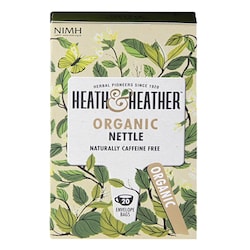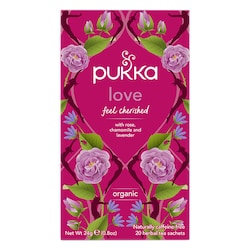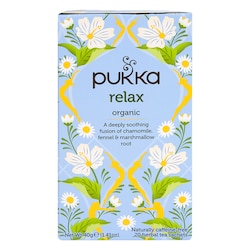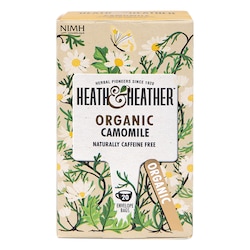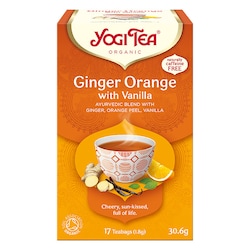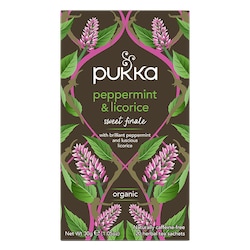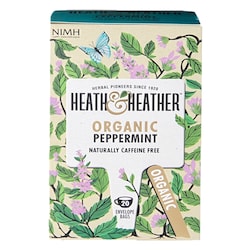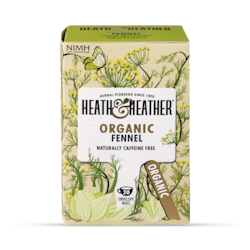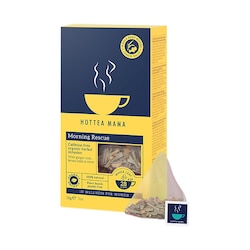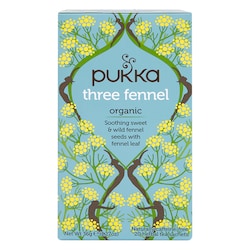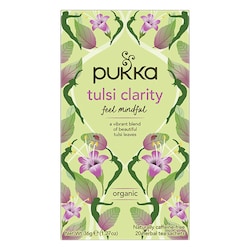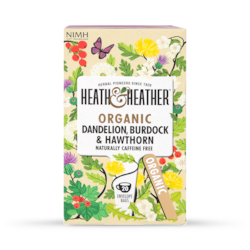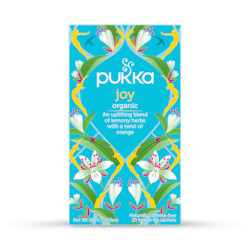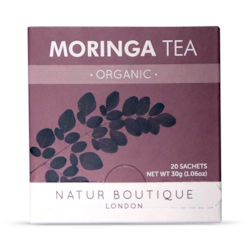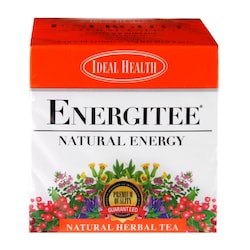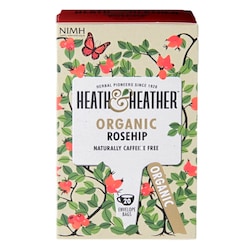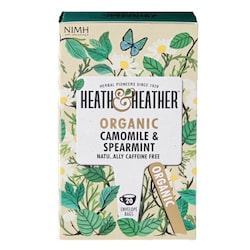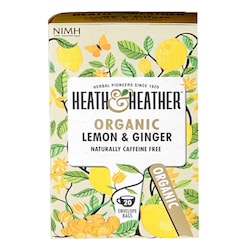20% off £30
Code:EASTER
The 9 most popular health benefits of fennel tea
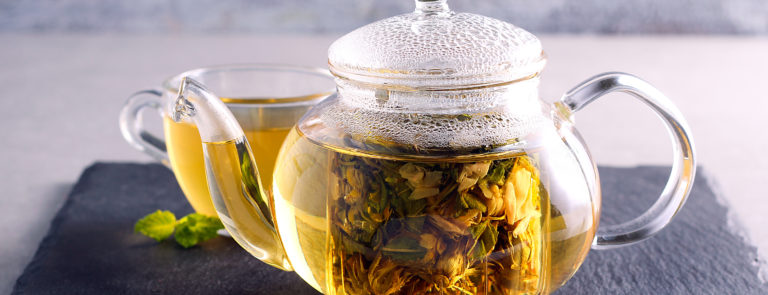
Want to delve into the aromatic world of fennel tea? Learn about the history of fennel tea, 9 of the most popular fennel tea benefits, how to make it and any side effects you should be aware of.
With one of those tastes that people tend to love or hate, fennel has been on the health (and dining) scene for quite some time and has gathered various associated health benefits along the way.
When using this Mediterranean favourite in the kitchen, slightly bitter-tasting fennel leaves are often roasted and served with fish.
The seeds of the fennel plant are dried, ground down and added to spice mixes for different dishes all over the world, from soups, curries and sauces, to fish fishes, pickles, cakes, and… you guessed it, tea!
What is fennel seed tea?
Fennel tea is made by drying seeds from the fennel plant and brewing them in hot water and is often consumed after meals for its relaxing aroma and apparent stomach-settling qualities. This strong-smelling brew has a liquorice-like taste with mildly bitter afternotes– but actually has nothing to do with liquorice at all! In fact, the fennel plant is closely related to the carrot family.What is fennel tea good for?
According to various old wives’ tales, hanging fennel over your door or stuffing it into the keyhole will protect you from evil spirits1… but let’s move on to some more science-related claims, shall we?! The fennel plant is one of the most widely used herbal plant and, along with fennel tea, has been used as a traditional medicine all around the world. From its origins in the Mediterranean all the way to China, India, and the Middle East, fennel has been used for all sorts of reasons, including supporting the2:- Digestive system
- Hormone production system
- Reproductive system
- Respiratory system
9 of the most popular health benefits of fennel tea
1. Could help your body fight infections
Fennel has been used as a herbal remedy to help cure several types of infections, including bacterial, fungal and viral cases. Several studies demonstrate the potential effect this herb could have on infections.3 One study demonstrated how a combination of fennel seed and other plant extracts helped to inhibit the growth of several types of bacteria, including4:- Enteroccus faecalis
- Staphyloccus aureus
- Esherichia coli
- Salmonella typhi
- Bacillus cereus
2. Could help to increase breast milk production
One of the most popular uses of fennel is to help breastfeeding mothers to increase the quantity, quality and flow of their breastmilk, substances that do this are called galactagogues. This claim has not been proven medically, but there is a lot of anecdotal evidence that it could help.5,6, 7 However, more significant research studies need to be conducted to explore this link further. Always take the advice of your GP, midwife or health visitor if you are struggling to breastfeed as it is often a complex issue.3. Could help you to relax
Drinking any herbal tea gives you time to sit down, relax and inhale the soothing aromas, and fennel tea is no different. In fact, fennel tea has been used traditionally to help ease feelings of stress and anxiety for centuries. A few studies have also found fennel to be an anti-anxiety and anti-stress agent.8,9 Try sipping on a fresh cup of fennel tea the next time you feel worried or on edge to see if it can help.4. Could help you sleep
As fennel tea could help you unwind at the end of the day and has been seen to help you relax on a physical level10, it could also help you sleep. Sleep and relaxation go hand in hand, so see if introducing fennel tea into your evening routine can help you feel nice and sleepy and ready for a good night’s kip.5. Could freshen-up your breath
Before mouthwash and good dental hygiene in general were around, people used fennel to help freshen their breath.11 Try having a cup after your morning coffees to see if it helps combat that dreaded coffee breath.6. Could aid digestion
Fennel has been associated with digestive health benefits for centuries and has been regularly prescribed by traditional herbalists to help relieve bloating, upset stomachs, excessive flatulence, and other digestive upsets. Consuming fennel tea warm could help to soothe your digestive system and could also help you relax overall, which usually helps to improve digestive issues.7. Could help you combat constipation
Constipation can be caused by dehydration and stress, amongst other things. As fennel tea supports good digestive health, helps you to relax and is a fantastic source of hydration, it could help you tackle constipation and relieve some discomfort.8. Increases your antioxidant levels
Fennel tea is rich in a group of antioxidants called flavonoids12, which help the body to fight back against oxidative stress caused by free radicals.9. Helps keep you hydrated
Staying hydrated is key for overall health and a cup or two of fennel tea a day can help you reach those hydration goals in a tasty and soothing way.Is fennel tea good for weight loss?
There is no current scientific evidence that fennel tea could help you to lose weight. However, swapping drinks full of sugar, artificial sweeteners and caffeine for herbal tea like fennel tea could help you to maintain your weight.Should you make fennel tea yourself or buy fennel tea bags?
Fennel tea is quite easy to make yourself (as you will see below) but if you don’t want the faff, just get yourself some fennel tea bags instead! A lot of brands combine it with other herbs, so be conscious of that when you buy.How to make fennel tea
- Crush 1-2 teaspoons of fennel seeds in a pestle and mortar or using the back of a spoon.
- Use a teapot or cup tea strainer to immerse the fennel seed in boiling water for around 5-10 minutes – depending on how strong you want it.
- Strain and serve.


